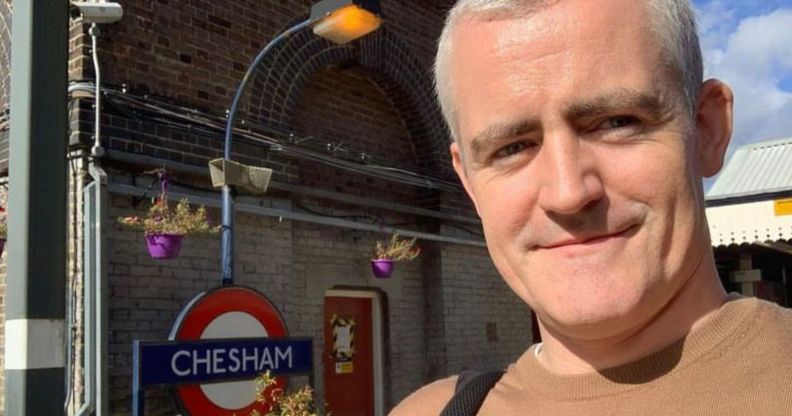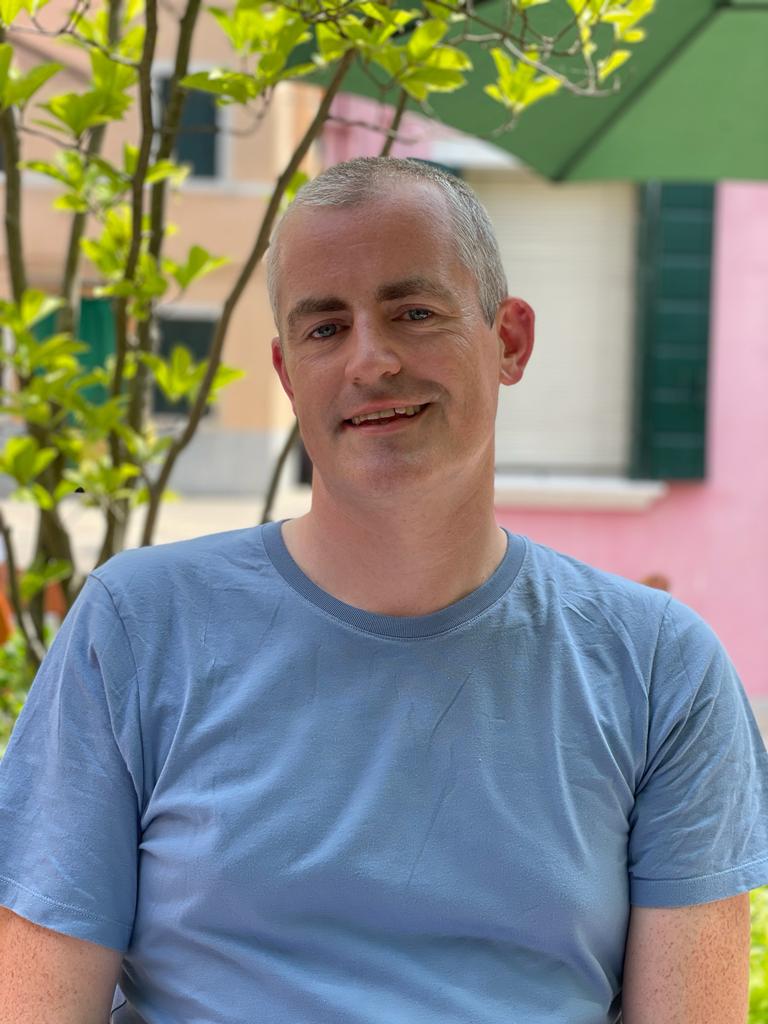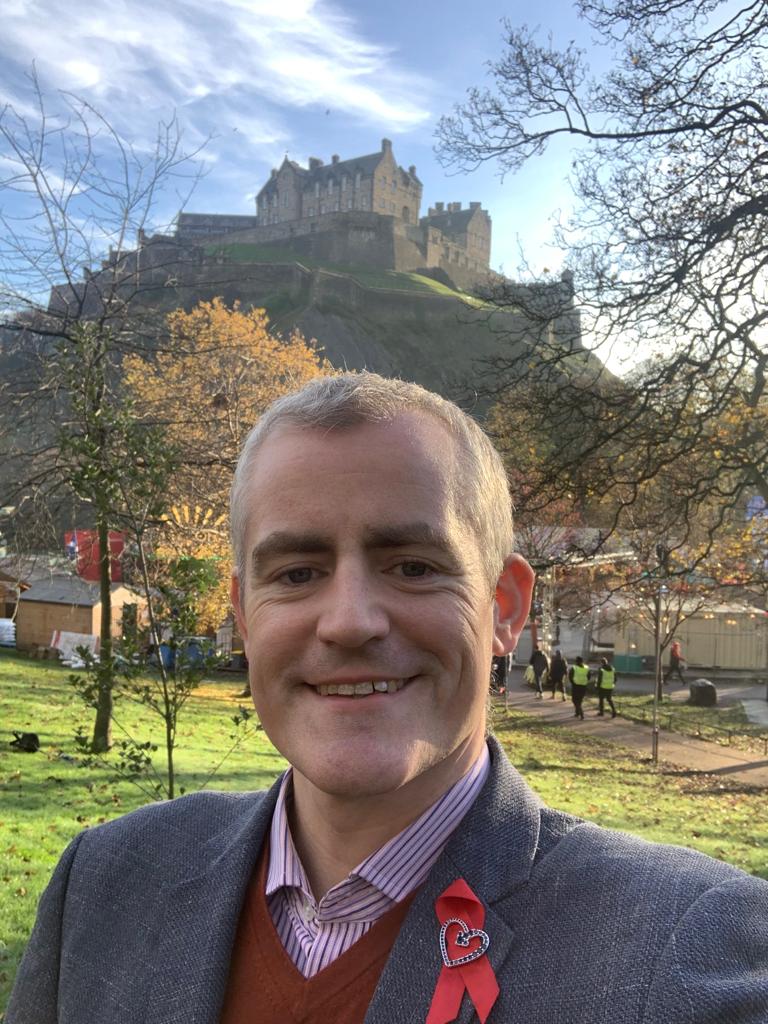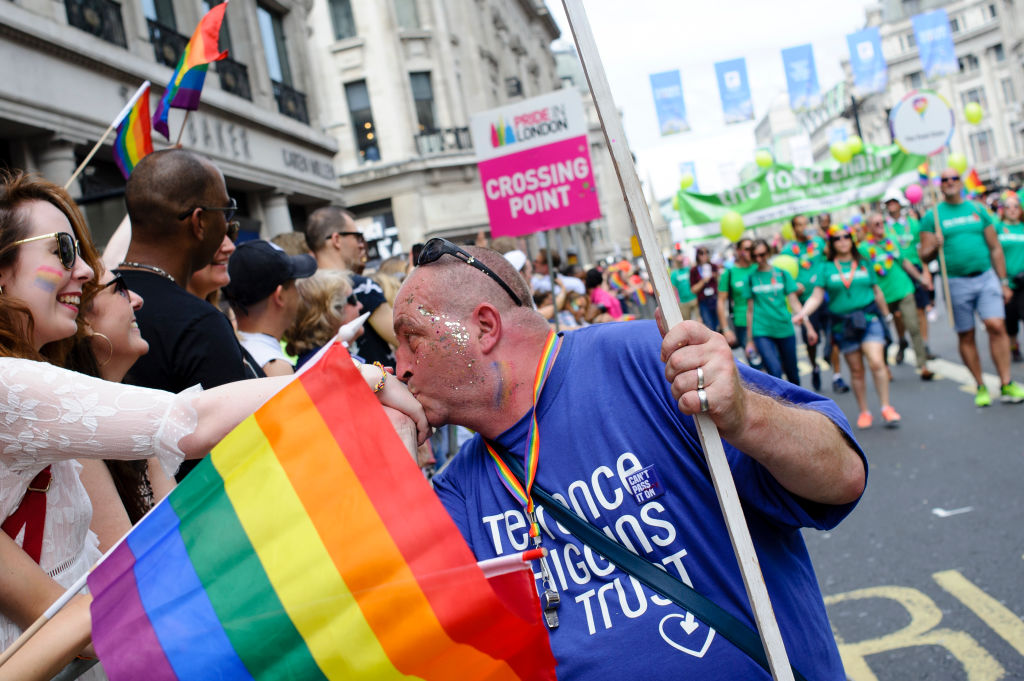Queer person living with HIV forced to disclose status while getting massage: ‘My heart sank’

Eugene Lynch was asked to disclose his HIV status when he went to a spa in a hotel. (Supplied)
A non-binary person living with HIV says they felt stigmatised when they went for a massage and were asked for their HIV status.
The incident happened when Eugene Lynch’s partner booked them both in to a hotel for spa treatments as a celebration for their anniversary.
What should have been a relaxing treat quickly turned sour when Eugene was asked to fill out a “treatment consultation” form.
Before receiving his massage, Eugene was asked to disclose whether he had conditions, including high blood pressure, asthma, epilepsy, HIV and many more.
Around halfway through his massage, Eugene realised the therapist was wearing surgical gloves.
“At that point, my heart sank and I assumed she was wearing gloves because I had ticked ‘yes’ to HIV on the form,” they tell PinkNews.
Eugene says he doesn’t know for sure why his massage therapist was wearing gloves – he points out she could have a skin condition, or it could be standard practice at the spa.

But they struggled to shake the fear that she had put on gloves because they are living with HIV.
“That felt quite stigmatising,” he says.
After the incident, Eugene wrote the hotel a lengthy letter in which he questioned why they needed to know his HIV status before giving him a massage, explaining that the experience left him feeling “vulnerable and exposed”.
If someone with HIV has a detectable viral load they can transmit the virus through body fluids such as blood or semen. In the UK, in most cases HIV is transmitted through sex without a condom.
The NHS says it is not transmittable through “contact with unbroken, healthy skin” – such as during a massage.
People with HIV who are on effective treatment cannot transmit the virus.
The hotel is now investigating, and for that reason, Eugene has decided not to disclose the name of the venue so it has the chance to rectify the situation and enact change.
However, they have decided to share his experience publicly because he feels it reflects the significant stigma people with HIV still face on a daily basis.
“For the first few years after my diagnosis I really struggled with it – I didn’t really tell anyone,” he reflects.
“I felt a lot of shame about my HIV for a long time and in the last few years I’ve been volunteering and I’ve been much more public in talking about HIV.

“I’m someone who’s not ashamed to talk about my HIV anymore, but in that situation where I had to put it down on the form, I felt really uncomfortable, and the fact that it was on the form made me think they didn’t have all the facts.”
The facts are vital. Medical science has come on leaps and bounds since the early 1980s when the AIDS epidemic began – those with HIV can now live long, healthy lives thanks to antiretroviral medication.
Effective treatment reduces a person’s viral load so much that HIV becomes undetectable in their bloodstream, meaning they can’t pass it on.
While there have been groundbreaking advances in medical science, public attitudes continue to lag behind.
Eugene doesn’t know for sure if the spa asked him about his HIV status because of ignorance or stigma – he says it’s possible it could be an insurance issue, and he’s willing to give the venue the benefit of the doubt while they investigate.
If it does turn out that he was asked his status due to outdated and stigmatising ideas about HIV, then it proves unequivocally that urgent change is needed.

The message they want the world to hear is that it’s vital people know the facts about HIV – fear must be removed from the equation.
“If people have all the knowledge and information about how it’s transmitted, how it’s prevented, what treatment is like, it really helps to manage people’s fears,” Eugene explains.
“A lot of people have a lot of fear around HIV that’s based on out of date information or ad campaigns from the 1980s and that fear is fuelling the stigma.
“The thing that will get rid of the fear is information and knowledge – letting people know the actual facts about HIV.”

